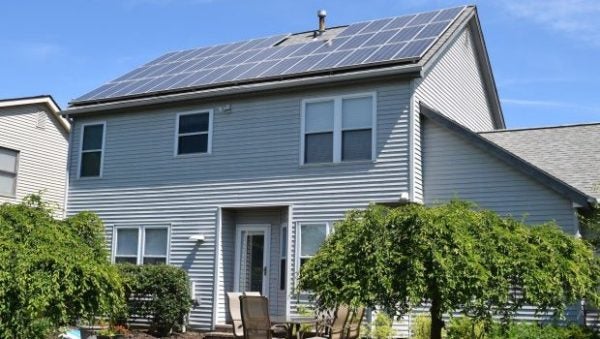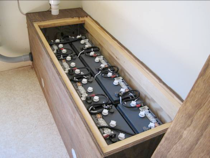What does it mean to be ‘off the grid’ with solar?


“I want solar because I want to get off the grid”.
We often hear this from homeowners. Most of the time they mean that they want to get some or all of the energy they use in their home from the solar array on their property. It’s an exciting prospect for a potential solar owner to produce their own electricity and it can capture the imagination.
For the majority of solar energy producers, this sentiment of going “off-grid” is a philosophical one, not a technical one. It represents their desire to be less reliant on the electricity generated by the utility company from non-renewable sources like coal, natural gas, and nuclear. But, there is a clear definition of off-grid that’s important to understand.
At Solar United Neighbors, we help to educate people about solar energy so they can be more knowledgeable consumers and advocates for solar in their communities. With that in mind, let’s dig a little deeper into the term “off-grid” and clarify exactly what that means from a technical perspective.
Off-grid vs. grid-tied with battery backup
So, what’s the technical definition of “off-grid”? An off-grid system is one that is not connected to the utility electrical distribution system (or “grid”) at all, ever. In other words, if your solar array (and batteries) are connected to your home electricity system and your home has a utility electric meter, your system is not off-grid.
If your solar array has batteries and you’re connected to the grid you probably have what’s called a “grid-tied with battery backup” system. In most cases, this means that your solar array produces energy to power loads in your home and keep your batteries charged and ready to go. At any given moment, if you’re making more solar energy than you need for those two tasks you send the rest of the energy to the grid and get a credit for it through net metering. If your utility power does go out, your batteries will take over and power some or all of your home’s energy needs depending on how it’s configured. That’s the “backup” part. This kind of solution is a replacement for more traditional fossil-fuel (diesel, propane, natural gas) powered generators.
In a completely off-grid system the solar array and batteries have to be designed to cover all of your home’s electricity needs at all times. That means your solar array powers some or all of your energy needs during the day and the battery provides the rest when there isn’t enough solar to power everything. At night, your batteries power your home completely (or a generator may help out too). The next day, the cycle starts all over again. In a true off-grid system like this, it’s essential that the amount of energy you use is balanced with the amount of electricity available from your solar array and battery bank because there is no utility grid to provide electricity if there’s no solar energy or battery energy available. Most people who have off-grid systems like this live too far away to be connected to the utility grid or the cost to connect their home to the grid is more than the cost of a solar and batteries off-grid electricity producing system.
“Self-consumption”
As the price of batteries declines a solar homeowner connected to the grid may not be able to go “off-grid” in the true sense of the word but they can ensure more of the electricity they produce from solar is used on site in their home. In most places today, there’s not an economic reason to do so. In some places however, where the cost of electricity from your utility is higher in the morning and at night than it is during the day, you might use batteries to keep your extra solar energy from the daytime and use it during those times when utility electricity is more expensive. This is called “self-consumption”. It means you are keeping some of your solar-generated electrons in batteries when you make them instead of sending them into the grid and then using them later when they’re worth more.
Solar allows homeowners to produce their own electricity. When you combine that with batteries it gives you even more flexibility to decide when and how you use your solar energy. So even if you aren’t “off-grid”, you’re able to rely more on your own solar array to power your home day and night.
